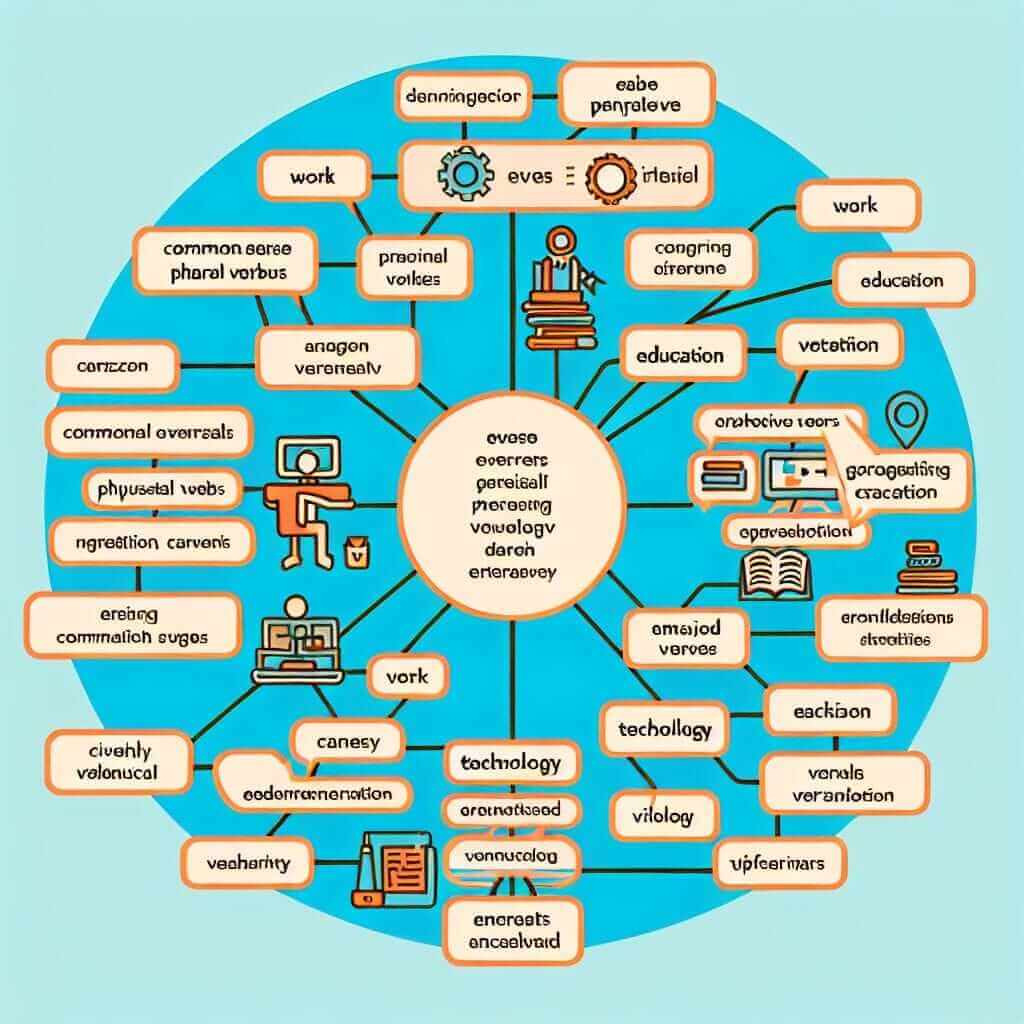Phrasal verbs, those pesky combinations of verbs and prepositions or adverbs, can be a real challenge for IELTS test-takers. They’re incredibly common in everyday English, and using them effectively can significantly boost your score in all four sections of the exam. Let’s dive into the world of phrasal verbs and equip you with the knowledge and strategies to conquer them.
Understanding Phrasal Verbs and Their Importance in IELTS
A phrasal verb consists of a main verb followed by one or two particles (prepositions or adverbs). The meaning of a phrasal verb often differs significantly from the individual meanings of its components. For example, “look up” doesn’t simply mean to direct your eyes upwards; it means to search for information.
Phrasal verbs pop up everywhere in the IELTS exam:
- Listening: You might hear a speaker say, “Let’s wrap up this meeting” instead of “Let’s conclude this meeting.”
- Reading: A passage might describe a historical event as “ushering in a new era” rather than “introducing a new era.”
- Writing: You could elaborate on a point in Task 2 instead of explaining it in more detail.
- Speaking: When discussing your hobbies, you might mention that you look forward to your weekly football game.
Types of Phrasal Verbs and Their Usage
1. Intransitive Phrasal Verbs
These phrasal verbs don’t take a direct object. They function independently.
Formula: Verb + Particle
Example: The plane took off on time.
Analysis: Here, “took off” is the phrasal verb. It doesn’t require an object.
IELTS Application: In the Speaking test, you might use “show up” to describe someone arriving unexpectedly: “My friend showed up at my house unannounced.”
2. Transitive Phrasal Verbs
These phrasal verbs require a direct object.
Formula: Verb + Particle + Object
Example: I need to look up the meaning of this word.
Analysis: “Look up” is the phrasal verb, and “the meaning of this word” is the direct object.
IELTS Application: You could use “point out” in the Writing Task 1 to highlight a trend in a graph: “The graph clearly points out the steady increase in online sales.”
3. Separable Phrasal Verbs
With some transitive phrasal verbs, you can separate the verb and the particle.
Formula: Verb + Object + Particle OR Verb + Particle + Object
Example: I need to fill out this application form. OR I need to fill this application form out.
Analysis: Both versions are grammatically correct. However, if the object is a pronoun, you must separate the verb and the particle: “I need to fill it out.”
IELTS Application: In the Listening test, you might hear someone say, “She turned down the job offer” OR “She turned the job offer down.”
4. Inseparable Phrasal Verbs
These phrasal verbs cannot be separated.
Formula: Verb + Particle + Object
Example: She takes care of her younger brother.
Analysis: You cannot say “She takes her younger brother care of.”
IELTS Application: In the Reading test, you might encounter a sentence like: “The author goes into detail about the environmental impact of plastic pollution.”
Common Mistakes to Avoid
- Incorrect particle usage: Choosing the wrong particle can completely alter the meaning. For example, “look up to” (admire) is different from “look down on” (disapprove of).
- Overusing phrasal verbs: While important, don’t force them into your writing or speaking. Using more formal verbs and expressions can sometimes be more appropriate.
- Misplacing the object: Remember the rules for separable and inseparable phrasal verbs to avoid grammatical errors.
Tips for Mastering Phrasal Verbs
- Learn phrasal verbs in context: Don’t just memorize lists. Pay attention to how they’re used in real-life situations, such as in books, movies, or podcasts.
- Create your own examples: Practice using phrasal verbs that you find challenging in sentences related to your own experiences.
- Use a good dictionary: Invest in a learner’s dictionary that provides clear explanations and examples of phrasal verbs.
- Practice, practice, practice: The more you encounter and use phrasal verbs, the more confident you’ll become.

Conclusion
Mastering phrasal verbs is an ongoing process, but it’s a worthwhile investment for your IELTS journey. By understanding their different types, practicing their usage, and being aware of common pitfalls, you can significantly enhance your fluency and accuracy. Remember, consistent effort and a strategic approach will pave the way to achieving your desired IELTS score.
For further exploration of phrasal verbs and other helpful language tips for IELTS, check out these resources: